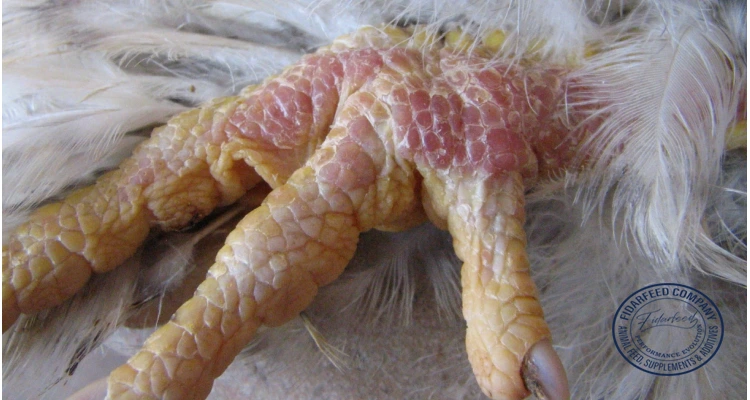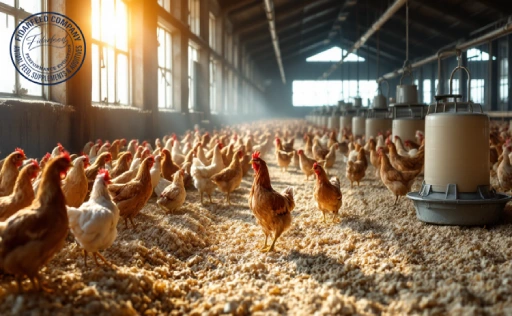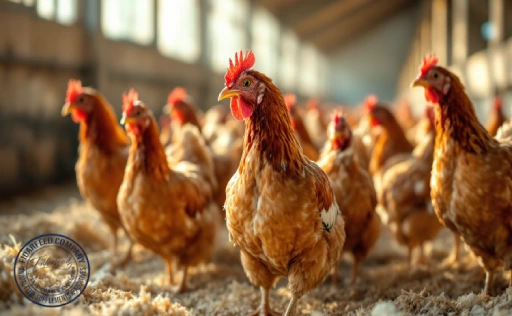
How to Treat Arthritis in Chickens is a question that touches the heart of every breeder, whether you’re just starting your journey or have been raising flocks for decades. Arthritis can severely affect not only the comfort and health of your breeder birds but also their productivity and longevity. If left unaddressed, it can lead to painful outcomes — for both the chickens and the breeders who care for them. Understanding how to manage and prevent this condition is essential for anyone involved in the breeder chicken feed industry. In this article, we’ll dive deep into practical, science-backed strategies to help you raise healthier breeder birds. Let’s get started!
Main Causes of Arthritis in Chickens: Protecting Your Breeder Birds Early
Arthritis in chickens isn’t just about old age or wear and tear. Several factors can trigger this painful joint condition. One major cause is bacterial infections, particularly from organisms like Mycoplasma synoviae or Staphylococcus aureus. These bacteria can enter a bird’s bloodstream and settle in the joints, leading to swelling and lameness.
Learn more about: Active Probiotic Yeast for Poultry
Genetic predispositions, nutritional deficiencies, and poor housing conditions are also major culprits. For instance, breeder chickens kept on hard surfaces without proper bedding often develop joint problems earlier. Similarly, an unbalanced diet low in essential vitamins and minerals can weaken bones and joints over time. Understanding these underlying causes is the first step toward preventing and effectively treating arthritis.
Early Warning Signs of Arthritis in Breeder Chickens: What to Watch For
Catching arthritis early makes a huge difference in treatment success. Look for subtle signs before the problem becomes severe. One of the earliest indicators is reluctance to move or favoring one leg. A chicken that limps, sits more often than usual, or avoids perches may be signaling joint discomfort.
You might also notice swollen joints, warmth around the hocks or feet, or decreased egg production in hens. Behavioral changes — like aggression, isolation, or reduced appetite — can also hint at hidden pain. Regular flock inspections and knowing what’s “normal” for your birds help you act fast when something’s off.
How to Treat Arthritis in Chickens: Effective Veterinary and Home Care Solutions
When it comes to how to treat arthritis in chickens, combining veterinary guidance with thoughtful home care gives your birds the best chance at recovery.
Veterinarians might prescribe antibiotics if a bacterial infection is present, or anti-inflammatory medications to reduce swelling and pain. Never attempt to self-prescribe human medicines — chicken physiology is different, and improper treatments can cause more harm than good.
Learn more about: Exploring Layer Breeder Chicken Breeds: Characteristics and Benefits of Each
At home, supportive care is crucial. Create soft resting areas with deep, clean bedding to ease joint pressure. Offer easy access to feed and water without needing to climb or jump. Some breeders have found success using natural supplements like omega-3 fatty acids, turmeric, or glucosamine — but always consult your vet before introducing new elements to the diet.
Real-world example: A 2023 study published in Poultry Science Journal found that supplementing breeder diets with fish oil improved joint health and mobility in arthritic flocks.
Nutrition Tips for Healthier Breeder Birds: Strengthening Joints from the Inside Out
Feed is your first line of defense against arthritis. Balanced nutrition rich in calcium, phosphorus, vitamin D3, and manganese supports strong bones and resilient joints.
Incorporate feeds formulated specifically for breeder chickens, and consider adding joint-boosting nutrients such as:
-
Omega-3 fatty acids (found in flaxseed and fish oils) to fight inflammation
-
Vitamin E and Selenium for immune support
-
Chondroitin and Glucosamine supplements, which are increasingly being used in poultry with good results
Avoid high-energy diets that promote obesity, as extra weight puts enormous stress on the joints, accelerating arthritis development.
Best Practices for Managing Chicken Housing and Environment to Prevent Arthritis
Housing plays a bigger role in joint health than many breeders realize. The right environment can prevent arthritis before it starts.
Key practices include:
-
Using soft, deep bedding like straw or wood shavings to cushion joints
-
Keeping coop floors dry and clean to prevent bacterial infections
Learn more about: Effective Ways to Prevent Newcastle Disease in Breeder Hens
-
Providing low, stable perches to avoid falls and injuries
-
Ensuring ample space so birds don’t crowd or jostle each other aggressively
Temperature control matters, too — cold, damp conditions stiffen joints and exacerbate arthritis symptoms. A well-ventilated but draft-free coop is vital for maintaining healthier breeder birds.
Exercise and Mobility: How to Help Arthritic Chickens Stay Active and Comfortable
It may seem counterintuitive, but chickens with arthritis still need gentle movement to prevent further stiffness and muscle loss.
Encourage short periods of low-impact activity by creating safe, open spaces where birds can move at their own pace. Place food and water just far enough apart to promote some walking but not so far that it causes distress.
Learn more about: A Complete Guide to Breeding Broiler Breeders: From Breed Selection to Reproduction
In some cases, physical therapy techniques — like gently stretching affected joints — have been adapted for poultry, usually under veterinary supervision.
Remember: Too little movement can cause joints to seize up, while too much can lead to more damage. Finding the right balance is key.
Preventive Strategies: How to Keep Your Breeder Flock Strong and Arthritis-Free
An ounce of prevention is worth a pound of cure. Here’s how to keep arthritis at bay:
-
Practice strict biosecurity to keep bacterial infections out of your flock.
-
Rotate bedding regularly and disinfect housing areas.
-
Provide proper nutrition tailored for breeders at every life stage.
-
Select breeding stock with strong skeletal structures and no history of joint issues.
-
Manage body weight through controlled feeding programs.
Learn more about: How to Maintain Optimal Temperature and Humidity for Breeder Hens?
Prevention not only reduces suffering but also saves significant costs and labor in the long run — a win-win for breeders and their birds.
When to Seek Professional Help: Working with a Poultry Veterinarian for Healthier Breeder Birds
Sometimes, despite our best efforts, a case of arthritis requires professional intervention. Don’t hesitate to call in a poultry veterinarian if:
-
Symptoms worsen rapidly
-
Multiple birds show signs at once
-
Home treatments aren’t providing relief
Learn more about: Impact of Water Quality on Health and Reproduction in Breeder Hens
A vet can perform diagnostics like joint fluid analysis or blood tests to determine the exact cause and prescribe targeted treatments. Partnering with an experienced poultry vet ensures you’re giving your breeder birds the best possible care.
Conclusion
Arthritis is a serious challenge, but with the right knowledge and approach, it’s absolutely manageable. By understanding how to treat arthritis in chickens and adopting smart prevention strategies, you can ensure healthier breeder birds and a thriving flock. From proper nutrition and housing to timely veterinary care, every small action you take today builds a stronger future for your birds.
I’d love to hear your thoughts! Have you faced arthritis issues in your breeder flock? What strategies have worked best for you? Feel free to leave a comment, share your experiences, or ask any questions you might have. Let’s learn and grow together!







